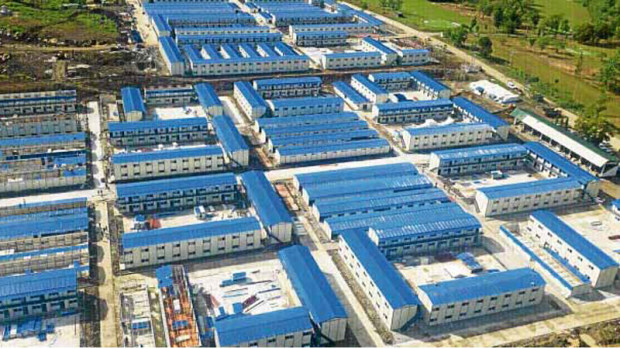Drugs board chief: 10,000-bed rehab center in Nueva Ecija a ’mistake’

The Drug Abuse Treatment and Rehabilitation Center at Fort Magsaysay in Laur, Nueva Ecija. (Contributed photo)
Pushing for a new tack in the war on drugs, Dangerous Drugs Board (DDB) Chairman Dionisio Santiago maintained that setting up a mega drug rehabilitation center was a mistake.
In an interview aired at the ABS-CBN News Channel, Santiago pointed out that the mega-drug rehabilitation center, which was built in Fort Magsaysay in Nueva Ecija, was too high maintenance.
“Impractical. That was a mistake,” he said. “The President was excited [by the project], but money spent building that could have been spent for smaller community-based rehabilitation centers which could accommodate only 150 or 200.”
The 100,000-square-meter Drug Abuse Treatment and Rehabilitation Center is a 10,000-bed facility opened on Nov. 29 last year. Its construction was funded by a Chinese real estate magnate. The facility is the first of three to be built around the country.
He said that it would have been more effective and practicable if the establishment of community-based rehabilitation centers had been given priority.
Article continues after this advertisementHe added that centers would allow for a family support system, which would be more vital to a recovering narcotics user.
Article continues after this advertisementSantiago is pushing for a Philippine Anti-Illegal Drugs Strategy – “Love Life, Fight Drugs” – which he described as an updated, more comprehensive and balanced approach to the war against illegal drugs.
He pointed out that the strategy is “more aligned with the social reform agenda of the President” and would work closely with the National Youth Commission.
“The anti-drug campaign is basically a marketing campaign,” he said. “So you target the market that is most vulnerable…So we can cater better to the market by using the thinking of the young people. What would be attractive to their peers, their age level? So we are adjusting and making some adjustments.”
Santiago said that his proposed Philippine Anti-Illegal Drug Strategy for 2016 to 2022 had been submitted for approval by President Rodrigo Duterte but it still had not been signed.
But he expressed confidence that the President would give the go-ahead to the strategy, which is focused on a socio-economic approach to solving the drug problem. /atm